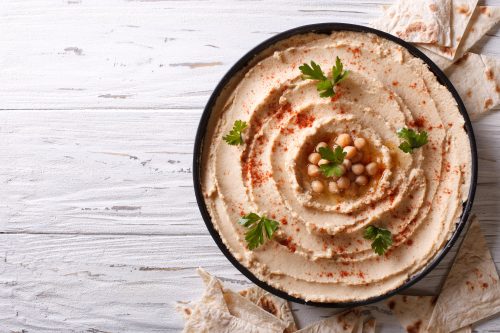
Q: "In the NZFSA booklet Food Safety When You Have Low Immunity, it states people with lowered immunity should not eat hummus. They don't give a reason for this. I eat a lot of hummus as I am trying to lose weight and I find it's an excellent substitute for spreads, sauces and mayonnaise. I also use various store bought dips as alternatives to high-fat dressings and spreads. I would appreciate your views on this."
BrendaA: Nutritionist Claire Turnbull responds:
"Many foods may come in contact with pathogens (or germs) and normally our immune system gets rid of any harmful types from the body without us even noticing. There are specific groups of people whose immune systems may be more susceptible to pathogens in food, increasing their risk of food poisoning. For these people it can be important to avoid foods considered higher risk in terms of pathogens. Hummus can fit into this category because it has a high protein and moisture content making it ideal for pathogens to grow in, if it is left for too long. Hummus commonly contains tahini (sesame seed paste) which is also considered high risk as in the past it has been contaminated with salmonella.
For those with normal immunity, eating hummus within its use-by date, or homemade varieties eaten fresh, should be fine. Always check the use-by or best before date before buying or using hummus and use it within two days of opening. Note: the temperature of your fridge should be between 2-4°C (you can buy a fridge thermometer from homeware or hardware stores).
People who may have lowered immunity include those having cancer treatment, people with HIV/Aids, pregnant women, people with a chronic illness, frail people or those who've had transplant surgery."
www.healthyfood.com










